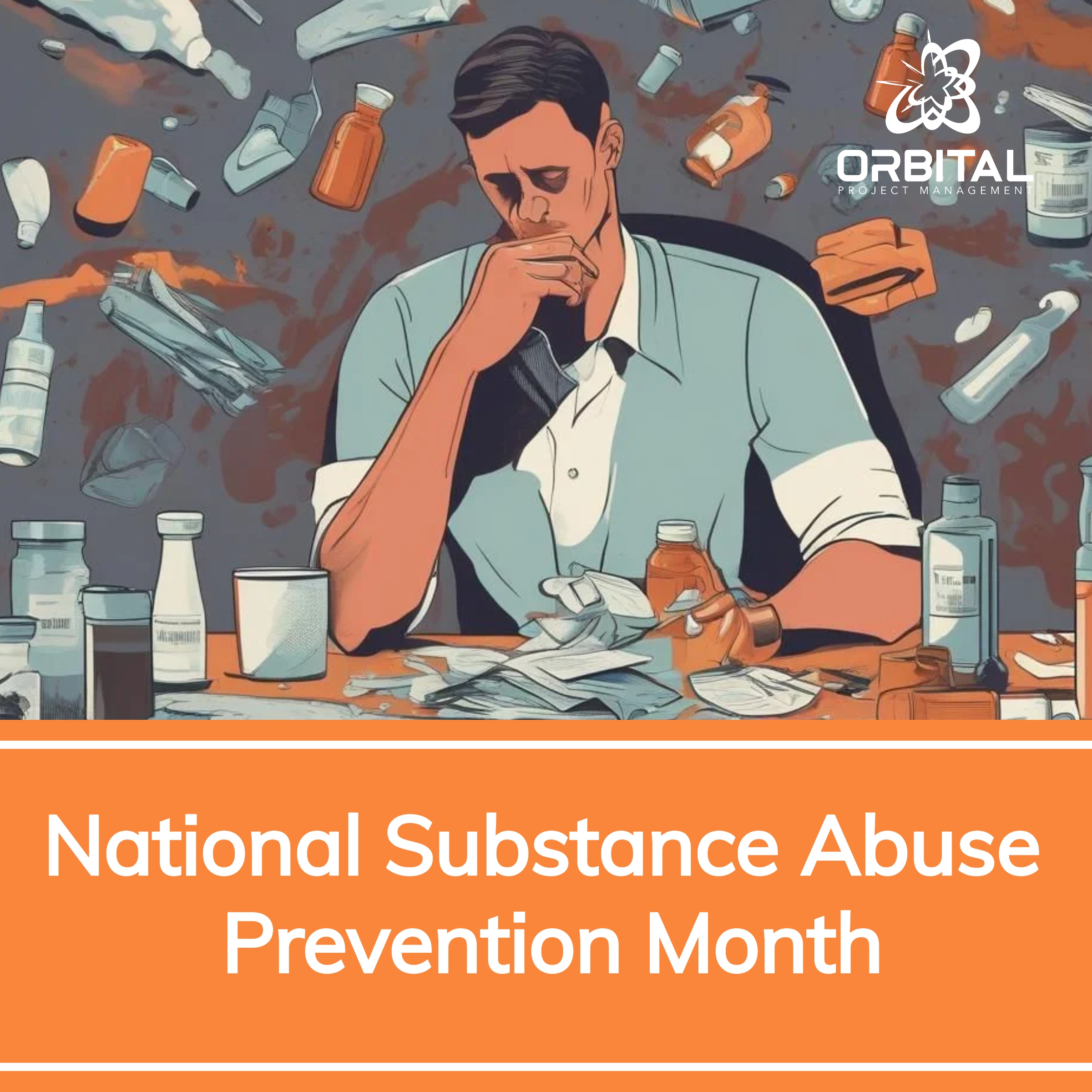October is National Substance Abuse Prevention Month. The impacts of substance abuse in both personal and work settings can be devastating. Organizations are increasingly recognizing the critical role that prevention practices play in enhancing workplace safety and preventing significant hazards that impact not only the health and well-being of employees but also the overall productivity and safety standards of companies. By implementing effective prevention strategies, companies can create a safer, more productive environment for everyone involved.
Understanding the Impact of Substance Abuse in the Workplace
Substance abuse can manifest in various forms, including alcohol and drug misuse, and can have profound effects on an individual’s physical and mental health. In a workplace setting, this can lead to several negative outcomes including:
Increased Risk of Accidents: Employees under the influence are more likely to make poor decisions, which can lead to accidents and injuries. According to research, substance abuse is a significant factor in workplace fatalities and injuries.
Decreased Productivity: An employee’s capacity to perform tasks efficiently is compromised when substances are abused. This can lead to missed deadlines, lower quality of work, and overall decreased productivity levels.
Higher Healthcare Costs: Employers bear the financial burden of healthcare related to substance abuse, including medical bills and workers’ compensation claims, which can be staggering.
Negatively Impacted Team Morale: The presence of substance abuse can disrupt team dynamics, reduce morale, and lead to increased absenteeism, putting a strain on the entire staff.
Implementing Effective Substance Abuse Prevention Practices
To mitigate these risks, organizations are turning to comprehensive substance abuse prevention practices that foster a healthy work culture. Key strategies may include:
Education and Awareness Training
Educating employees about the risks associated with substance abuse is a fundamental first step. Providing information on the signs of substance abuse, its consequences, and the resources available for help can empower employees to make informed choices. Regular training and workshops can also promote awareness and foster an open dialogue about the issues surrounding substance use.
Establishing Clear Policies
Organizations should develop clear substance abuse policies that outline expectations regarding drug and alcohol use, including the consequences for violations. These policies should be communicated effectively to all employees and included in employee handbooks. Having a clear and consistent approach helps establish a culture of safety and accountability.
Promoting a Healthy Work Environment
Encouraging a healthy workplace culture can significantly reduce the prevalence of substance abuse. This can include promoting work-life balance, providing mental health resources, and offering wellness programs. By addressing potential stressors that might lead to substance use, companies can proactively protect their workforce.
Employee Assistance Programs (EAPs)
Offering access to Employee Assistance Programs can provide employees with confidential support and resources to tackle substance abuse issues. EAPs can offer counseling, referral services, and support for those struggling with addiction, enabling them to seek help without fear of stigma or repercussions.
Drug Testing and Screening
When appropriate and in accordance with company policies, the use of drug testing or screening practices may indicate situations where substance use or abuse impacted an incident. Pre-employment testing can identify individuals who may be in need of substance abuse services prior to being eligible for hire.
The Benefits of Prevention Practices
Implementing substance abuse prevention practices translates into multiple benefits for organizations:
- Reduced Workplace Accidents: A decline in substance-related accidents enhances workplace safety and helps protect employees from harm.
- Improved Employee Well-being: A supportive environment that addresses substance abuse promotes the mental and physical well-being of employees, fostering resilience and productivity.
- Lower Costs: By preventing substance abuse, companies can reduce healthcare and compensation costs associated with accidents and health issues.
- Enhanced Team Cohesion: A drug-free workplace contributes to better team dynamics and improves overall morale within the organization.
Substance abuse prevention practices are vital not only for safeguarding employees but also for enhancing workplace safety as a whole. By fostering an educational and supportive environment, organizations can actively combat the risks associated with substance abuse and cultivate a culture of wellness. Ultimately, prioritizing substance abuse prevention is an investment in the health and productivity of a company’s most valuable asset—its people.
Supporting our Staff
Here at Orbital Project Management, we strive to support our team members in every way we can. From EAP services available to all employees to open communication and wellness trainings, our staff’s health and well-being are our top priority.
An Extra Dose of Goodness
Stay in the loop with Orbital the easy way – through our monthly newsletter delivered directly to your inbox each month.






